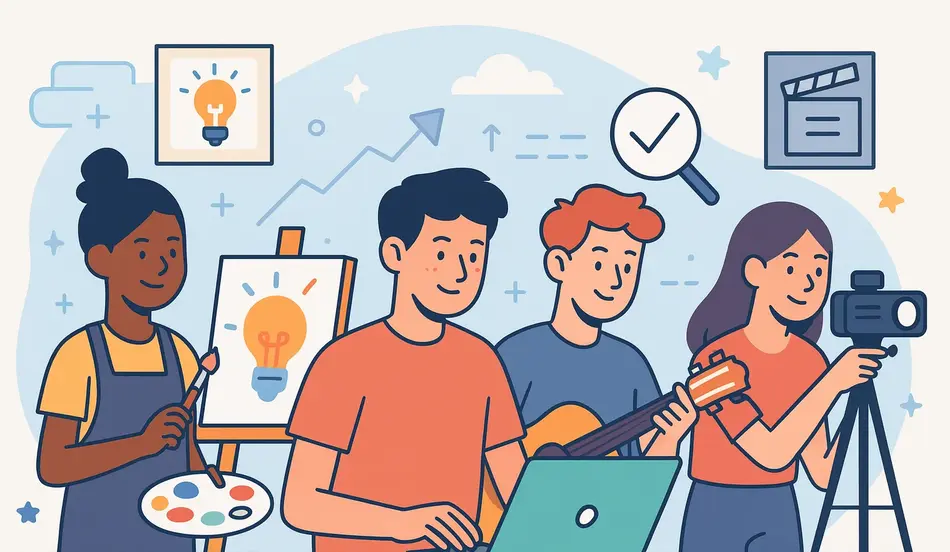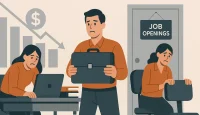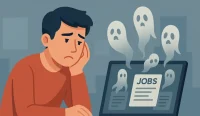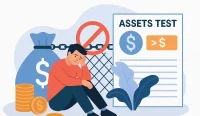How do hobbies turn into career options for teens? This is one of the most powerful questions every teenager should ask themselves. Imagine turning something you love doing in your free time into a job you enjoy every day – it might sound like a dream, but many successful careers start from hobbies that grow into something much more meaningful and profitable.
When teenagers spend time on activities like drawing, coding, cooking, or playing sports, they’re not just having fun – they’re developing valuable skills that can be directly useful in real jobs. The key is recognizing these skills and understanding how to translate them into career opportunities that align with their passions and interests.
The journey from hobby to career isn’t always straightforward, but with the right mindset, guidance, and practical steps, teenagers can transform their favorite pastimes into fulfilling professional paths that provide both personal satisfaction and financial stability.
The Psychology Behind Hobby-to-Career Transformation
The transformation from hobby to career works because hobbies naturally align with our interests, strengths, and values. When teenagers engage in activities they genuinely enjoy, they’re more likely to invest time and effort into improving their skills, which creates a strong foundation for professional development.
Research shows that people who work in fields related to their hobbies experience higher job satisfaction, better work-life balance, and increased motivation. This is because they’re already intrinsically motivated to excel in these areas, making the transition to professional work feel more natural and rewarding.
The psychological benefits extend beyond just job satisfaction. Teenagers who pursue careers based on their hobbies often develop stronger self-confidence, clearer career direction, and a deeper sense of purpose. They’re more likely to become experts in their chosen fields because they’re genuinely passionate about the work.
Identifying Transferable Skills in Your Hobbies
The first crucial step in turning hobbies into career options is identifying the transferable skills you’re developing. Every hobby teaches valuable abilities that employers look for, even if they’re not immediately obvious.
For example, if you enjoy drawing, you’re developing creativity, attention to detail, visual communication skills, and the ability to work independently. These skills translate directly to careers in graphic design, illustration, animation, architecture, or even medical illustration.
If coding is your hobby, you’re building logical thinking, problem-solving abilities, attention to detail, and technical proficiency. These skills open doors to careers in software development, web design, data analysis, cybersecurity, or artificial intelligence.
Even seemingly unrelated hobbies like cooking teach valuable skills: time management, creativity, attention to detail, customer service, and the ability to work under pressure. These skills can lead to careers in culinary arts, restaurant management, food photography, or even food science.
From Hobbies to Careers
Today’s teens are transforming passions into career paths — from gaming and content creation to coding and design. Employers can tap into this new generation of talent eager to learn, adapt, and grow. Post your job on WhatJobs today and connect with young professionals ready to turn their hobbies into lasting careers.
Post a Job Free for 30 Days →The Most Promising Hobby-to-Career Pathways
Certain hobbies have particularly strong potential for career transformation, especially in today’s digital economy. Understanding these pathways can help teenagers make informed decisions about which hobbies to pursue more seriously.
Digital hobbies like photography, video editing, social media management, and content creation have exploded in career potential thanks to the rise of influencer marketing, digital marketing, and online businesses. These fields offer flexible work arrangements and often allow teenagers to start building their careers while still in school.
Creative hobbies including writing, music production, graphic design, and crafts have found new life through online platforms, Etsy stores, freelance marketplaces, and social media. The internet has democratized access to audiences and customers, making it easier than ever to monetize creative skills.
Technical hobbies like programming, robotics, gaming, and electronics repair are in high demand as technology continues to advance. These skills often lead to well-paying careers with strong job security and growth potential.
Building a Professional Portfolio from Your Hobbies
One of the most effective ways to transition from hobby to career is by building a professional portfolio that showcases your skills and achievements. This portfolio serves as tangible evidence of your capabilities and helps potential employers or clients understand what you can offer.
For creative hobbies, this might mean creating a digital portfolio website, maintaining an Instagram account showcasing your work, or building a collection of your best pieces. The key is to present your work professionally and consistently, demonstrating both your technical skills and your unique style.
For technical hobbies, portfolios might include code repositories on GitHub, completed projects with documentation, or certifications from online courses. These demonstrate not just what you can do, but your commitment to continuous learning and improvement.
The portfolio-building process itself teaches valuable professional skills: project management, self-promotion, attention to detail, and the ability to present information clearly. These are skills that will serve teenagers well regardless of which career path they ultimately choose.
Gaining Real-World Experience Through Your Hobbies
Practical experience is crucial for turning hobbies into viable career options. Teenagers should actively seek opportunities to apply their hobby-based skills in real-world settings, even if they’re not getting paid initially.
Volunteering is an excellent way to gain experience while making a positive impact. For example, if you love photography, offer to take photos for local events, school functions, or nonprofit organizations. If you enjoy writing, volunteer to create content for school publications, local newspapers, or community websites.
Internships and part-time jobs related to your hobbies provide valuable professional experience and networking opportunities. Many companies are willing to take on enthusiastic teenagers for internships, especially if they can demonstrate genuine passion and some level of skill.
Freelancing or starting small side businesses can also provide real-world experience while potentially generating income. Platforms like Fiverr, Upwork, or local community boards often have opportunities for teenagers to offer their services.
The Role of Education and Training in Career Development
While hobbies provide a strong foundation, most career paths require some level of formal education or training. Teenagers should research what specific qualifications are needed for their chosen career paths and plan accordingly.
Some careers require formal degrees, while others value certifications, apprenticeships, or self-directed learning. Understanding these requirements early allows teenagers to make informed decisions about their educational paths and avoid unnecessary expenses or time investments.
Online learning platforms have made it easier than ever to gain professional skills and certifications. Many courses are affordable or even free, allowing teenagers to explore different career paths without significant financial investment.
Community colleges, trade schools, and specialized training programs often offer more practical, career-focused education than traditional four-year universities. These options can be particularly valuable for hobby-based careers that emphasize hands-on skills.
Education and Training: Building Career Foundations
From certifications to apprenticeships, the right training can turn potential into professional success. Employers benefit by hiring candidates who invest in learning and skill development. Post your job on WhatJobs today and connect with talent prepared to grow with your organization.
Post a Job Free for 30 Days →Overcoming Common Challenges and Obstacles
The journey from hobby to career isn’t without challenges. Teenagers often face skepticism from adults who don’t understand how hobbies can become “real” careers, or they may struggle with self-doubt about their abilities.
Financial concerns are another common obstacle. Many hobby-based careers require initial investments in equipment, software, or training. Teenagers should research funding options like scholarships, grants, or crowdfunding platforms that can help cover these costs.
Competition can be intimidating, especially in popular fields like content creation or graphic design. However, focusing on developing a unique style or niche can help teenagers stand out from the crowd and build a loyal following.
Time management becomes crucial when balancing hobby development with school, work, and other responsibilities. Learning to prioritize and manage time effectively is a skill that will benefit teenagers throughout their lives.
Frequently Asked Questions
How do hobbies turn into career options for teens?
How do hobbies turn into career options for teens by developing transferable skills, building professional portfolios, gaining real-world experience, and identifying career pathways that align with their interests and strengths.
What are the most promising hobby-to-career pathways for teenagers?
The most promising hobby-to-career pathways for teenagers include digital skills (photography, video editing, social media), creative pursuits (writing, music, graphic design), and technical hobbies (programming, robotics, electronics) that are in high demand.
How can teenagers build professional portfolios from their hobbies?
Teenagers can build professional portfolios from their hobbies by creating digital showcases, maintaining consistent online presence, documenting projects and achievements, and presenting their work professionally to demonstrate their capabilities.
What challenges do teenagers face when turning hobbies into careers?
Teenagers face challenges including skepticism from adults, financial constraints for equipment and training, competition in popular fields, and time management when balancing hobby development with other responsibilities.
A Real-World Example: From Gaming Hobby to Esports Career
Jake Rodriguez, a 17-year-old high school student, discovered how hobbies can turn into career options when his passion for competitive gaming led to an unexpected career opportunity. “I’ve been gaming since I was 10, but I never thought it could become a real job,” Jake explains. “I was just playing for fun with friends, but I started getting really good at strategy games.”
Jake’s breakthrough came when he began streaming his gameplay on Twitch and creating strategy guides on YouTube. “I wasn’t trying to make money at first – I just wanted to share what I’d learned with other players,” he says. “But then people started asking me to coach them, and I realized I could actually help others improve their gameplay.”
Within six months, Jake had built a following of over 10,000 subscribers and was earning $500-800 per month through coaching sessions, sponsorships, and YouTube ad revenue. “The best part is that I’m doing something I love every day,” Jake says. “I wake up excited to work, which I never thought was possible.”
Jake’s success demonstrates how modern technology has made it easier than ever for teenagers to monetize their hobbies. “The key was treating my hobby seriously and consistently creating content,” he explains. “I set a schedule, learned about video editing and social media marketing, and treated it like a real business.”
Now, Jake is planning to study digital marketing in college while continuing to grow his gaming career. “I want to learn more about business and marketing so I can scale this into something even bigger,” he says. “My hobby taught me that if you’re passionate about something and willing to work hard, you can turn it into a career.”
Don’t Let Your Hobbies Stay Just Hobbies
The question “How do hobbies turn into career options for teens?” has never been more relevant or important. In today’s rapidly changing job market, the skills and passions teenagers develop through their hobbies can become the foundation for successful, fulfilling careers.
The key is to start thinking strategically about your hobbies now. Don’t just see them as fun pastimes – recognize them as opportunities to develop valuable skills, build professional networks, and explore potential career paths.
Take action today by identifying the transferable skills in your favorite hobbies, researching related career opportunities, and starting to build a professional portfolio. The sooner you begin this process, the more time you’ll have to develop expertise and gain real-world experience.
Remember, the most successful people in any field are often those who turned their passions into their professions. Your hobbies aren’t just ways to pass time – they’re potential pathways to a career you’ll love.




